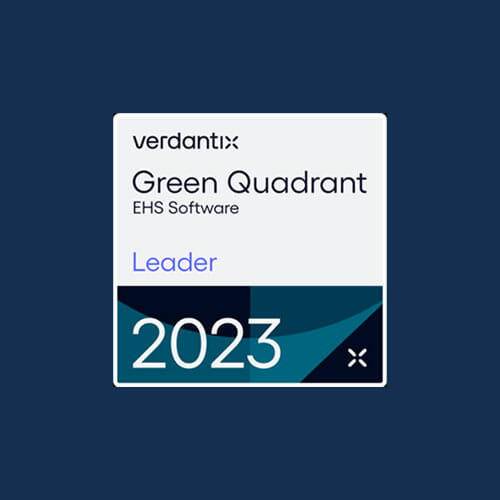On November 10, 2022, the Corporate Sustainability Reporting Directive (CSRD) was adopted in its final form by the relevant bodies of the European Union (EU). This milestone will massively change how we think about and implement sustainability reporting in companies. In this article, we’ll explore the critical aspects of the CSRD in more depth.
The Higher Purpose and Motivation Behind the CSRD
In April 2021, the EU Commission made a bold move – in the shape of the Corporate Sustainability Reporting Directive (CSRD) to reform the existing reporting obligation (also known as the Non-Financial Reporting Directive (NFRD)) and subject it to a fundamental update that includes significantly more transparency within sustainability reporting.
The reason: Despite the previous reporting obligation, there is still far too little sustainability information available and the information is not always trustworthy, especially for investors. In addition, the previous disclosure obligation did not provide formal specifications (e.g., mandatory use of standards), so it was impossible to ensure information comparability. In short, non-financial reporting needed a push towards standardization, greater depth, and professionalization to put it on an equal footing with financial reporting.
Through the Sustainable Finance Disclosure Regulation (SFDR), investors’ attention was explicitly directed to sustainability information and ESG risks and opportunities. Since investors are now required to have concrete insight on the impact companies have on people and environment, they must play close attention to this information to ensure they can meet their disclosure obligations aligned with SFDR and, more importantly, so that they can effectively channel their investments into sustainable business activities by the EU taxonomy.
These changes are ultimately in pursuit of achieving the ambitious goal of the European Green Deal to advance, if not accelerate, the sustainable transformation in Europe. Thus the CSRD was adopted with a large majority by the EU Parliament on November 10, 2022, paving the way for an effective economic transformation.
Four Key Aspects of the New Reporting Obligation Under CSRD
The name of the directive already indicates the essential change: Sustainability is to be treated integrally in reporting and progressively put on an equal footing with financial topics as part of a robust ESG program now demanded by investment institutions. Here are four of the concrete changes that will reinforce sustainability reporting.
Scope: Around 50,000 companies across Europe now subject to reporting obligations
The current reporting obligation, NFRD, applies to large listed companies, banks, and insurance companies (‘public interest entities’) with more than 500 employees. Thus, about 11,000 companies in the European Union are currently obliged to report on non-financial topics. The CSRD significantly expands this group of obligated companies. From now on, all large companies that meet at least two of the following three criteria will be required to report:
- More than 250 employees
- A total annual balance of over 20 million Euros
- Sales of over 40 million Euros
This will put more than 50,000 companies across Europe under obligation. In addition, from 2026, listed SMEs and, from 2028, non-European companies that generate net sales of more than €150 million in the EU and have at least one subsidiary or branch in the EU will be obliged to submit a sustainability report.
Standard: Introduction of mandatory use of the European reporting standard “ESRS.”
The CSRD will – for the first time – introduce the mandatory use of a European reporting standard and therefore give specific guidelines in form and content as well as procedural matters such as the materiality and risk analysis. The European Sustainability Reporting Standards (ESRS) are being developed by the European Financial Reporting Advisory Group (EFRAG). They will contain sector-agnostic, sector-specific, and entity-specific standards along the ESG dimensions. The sector-agnostic standards – as core standards – were finalized by EFRAG in November 2022 and handed over to the European Commission. The Commission wants to check and approve the EFRAG drafts of the ESRS until June 2023. Nothing is set in stone, but it is clear what will wait on the horizon of reporting practice in the future.
Audit: Introduction of an audit / “limited assurance” requirement for reported sustainability information
The CSRD will introduce the obligation to have an external audit of the reported sustainability information to ensure the reported information is accurate and reliable. The objective is to implement a similar assurance for financial and sustainability reporting. As the first step, the CSRD introduces a so-called “limited assurance”. The auditor will check compliance with the ESRS in form, content, and processes.
Deepening: Deepening of the process-related and content-related requirements regarding sustainability reporting
The ESRS – in its current form – will introduce 84 specific reporting requirements and 1,144 qualitative and quantitative data points. This is a massive broadening of requirements within sustainability reporting. In addition to these requirements, the new reporting obligation will introduce process-related specifications such as how to undergo a materiality assessment and identify the sustainability-related risks. The same will apply, for example, for specific climate-related content by requiring the use of the GHG Protocol to calculate emissions. In the future, it won’t be enough to report relevant findings, rather companies will have to comply with process-related requirements to validate their results.
The New Timeline is Giving More Transition Time but is Still Ambitious
The CSRD has a new timeline that provides companies with enough time to undergo a transition period and get CSR-ready:
- January 1, 2024: For companies that already fall under the NFRD (first report in 2025 for the financial year 2024)
- January 1, 2025: For large companies that do not yet fall under the NFRD but meet the criteria set by the CSRD (first report in 2026 for the financial year 2025)
- January 1, 2026: For listed SME and complex credit and internal assurance companies (first report in 2027 for the financial year 2026) with the possibility to opt out until 2028
Role of Data Management in the Context of New Generation Reporting
Future sustainability reporting via CSRD will have enhanced reporting requirements (84) and qualitative and quantitative data points (1,144). Structured data management is becoming more and more crucial to professional corporate reporting. Therefore, digitalization is a game changer that improves analysis, comparability, and decision-making. Failure to digitalize could lead to real-world inefficiencies that could hamper or jeopardize the entire reporting effort.
Implementing intelligent romance and demonstrating the accuracy of the information to meet the requirements will call for data-driven insights that software can help companies uncover. Implementing a smart data management system – such as Cority’s Sustainability Cloud – is, therefore, a sensible investment in the readiness and professionalization of corporate sustainability reporting. Check out our guide, Finding the Right Technology in a New Era of Sustainability, for more info on what to look for when considering sustainability software to help navigate common sustainability reporting challenges.













